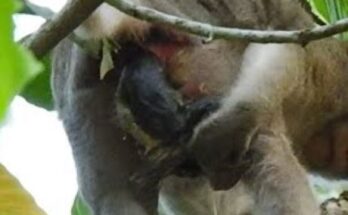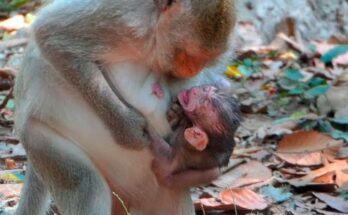The daily life of a monkey family is an intricate blend of care, play, and survival. In the wild, monkeys often live in social groups called troops, which provide safety and structure. A typical day begins at dawn, with the family waking and foraging for food. Monkeys are omnivorous, so their diet includes fruits, leaves, insects, and occasionally small animals. Foraging is not just about nourishment but also an opportunity for social interaction and learning, especially for the younger members.
Mother monkeys play a central role in the upbringing of their offspring. From the moment a baby monkey is born, the mother is its primary caregiver, ensuring its safety, nourishment, and emotional well-being. Baby monkeys cling to their mothers’ bellies or backs during the early months, rarely leaving their side. This close physical contact fosters a strong bond and allows the baby to feel secure while observing and learning about its environment.
Mothers are highly protective of their young, often positioning themselves between potential threats and their babies. If danger arises, they can be seen fiercely defending their offspring, sometimes with the support of other troop members. Grooming is another vital activity in monkey families, serving not only as a hygiene practice but also as a way to strengthen social bonds. Mothers frequently groom their babies, removing dirt and parasites, while the gentle action also soothes the baby.
As the baby grows, the mother gradually encourages independence. She allows the youngster to explore under her watchful eye, intervening only when necessary. This process helps the baby develop critical skills, such as climbing, foraging, and socializing with other troop members. Play is a significant part of this developmental stage; young monkeys engage in games like chasing, tumbling, and mock fighting. These activities improve physical coordination and teach important social cues.
Other members of the troop, such as siblings, aunts, and even older juveniles, often assist in caring for the baby, a behavior known as alloparenting. This collective care not only lightens the mother’s burden but also provides the baby with varied interactions and experiences.
By sunset, the troop regroups to find a safe place to rest, often in the branches of tall trees. The mother monkey keeps her baby close, ensuring it stays warm and protected through the night. This cycle of care, learning, and bonding exemplifies the intricate dynamics of monkey family life.


